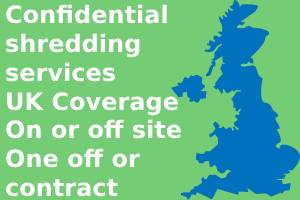3,329 calls to the NSPCC Helpline raising concerns of substance abuse near children over the last three years
A 23% rise between 2013/14 and 2015/16, with a total of 3,048 referrals to external agencies
Figures published as UK marks Children of Alcoholics Week (Feb 12-18)
The NSPCC’s helpline has seen a rise in the number of people reporting drug and alcohol use around children over the last three years.
More than 1,170 people from the North West contacted the charity last year to describe potential substance misuse amongst adults when children and young people were in their care or nearby.
The number is up by 23 per cent since 2013 /14, when 951 people got in touch.
Over the last three years the focus of more than 3,329 calls to the NSPCC helpline has been children’s exposure to alcohol, drugs and other substances in the North West.
Across the UK, there were more than 25,000 helpline contacts focused on the issue.
Some contacts have been judged so serious that the charity has made more than 3,040 referrals to external agencies, including the police and children’s services, about substance abuse around children in the past three years.
The helpline is a free and confidential service that adults can contact by phone or online to get advice or share their concerns about a child.
Some contacts have been judged so serious that the charity has made more than 20,000 referrals to external agencies, including the police and children’s services, about substance abuse around children in the past three years.
The figures have been released as the UK marks the start of Children of Alcoholics Week, which aims to raise awareness of the problems and suffering associated with parental alcohol problems.
Substance misuse is a significant risk for children and often leads to neglect and abuse. Excessive alcohol consumption or use of drugs inevitably make it difficult for parents to deal with family life and often put pressure on relationships.
Children’s feelings, their relationship with their parents and how they’re looked after are all inevitably affected.
One member of the public got in touch with the NSPCC helpline to report concerns of drug taking in a home also occupied by children. The caller said:
They have a party going on in the house every weekend; I see lots of people entering and leaving the property and there is a strong smell of drugs lingering in the air when this happens. The children are inside the home when the parties are taking place and I’m becoming worried for their welfare. The mother has a drinking problem and she regularly leaves the children at home on their own too. I don’t want to approach her myself as it may create tension between us. What should I do?
Another caller got in touch with allegations related to alcohol abuse:
I feel really sad about what’s happened but I’m concerned about the children. The father of the child lost his partner recently and has since started drinking heavily. He has stopped going to work and isn’t doing much with himself apart from drinking away. I’ve noticed the children aren’t going to school regularly anymore or being fed properly. Most of the furniture in the house is smashed up and I don’t think it’s suitable for children to be living in. I feel really stressed out because I don’t know what to do – please help.
The NSPCC's data includes all helpline contacts which involved concerns about alcohol, drugs or other substances around children. Where a contact is considered serious enough, a referral may be made to an external agency. One contact may result in a number of referrals and these have increased from 844 in 2013/14 to 1096 in 2015/16.
NSPCC Chief Executive, Peter Wanless, said:
“Drug and alcohol abuse can have hugely damaging effects around children and it’s clearly troubling to see a rise over time in reports of this problem to our helpline.
“Substance misuse all too often leads to the neglect or abuse of a child and it’s absolutely crucial that we do all we can to stop that. The NSPCC provides services directly to families suffering from these problems to help them overcome them and provide their children with a safe and secure upbringing.
“But everyone has a duty to look out for potential signs of distress and the NSPCC’s helpline is there to provide help and support 24 hours a day, 365 days a year.”
The NSPCC works with parents battling alcohol and drug addiction and provides services aimed at supporting their recovery.
Direct services provided include FEDUP (Family Environment: Drug Using Parents), which provides a safe, confidential space for children to express their feelings, while working with parents in one-to-one sessions to help them understand the effects of substance misuse.
Parents Under Pressure aims to support parents who are on a drug or alcohol treatment programme. Visiting them at home, the 20-week programme can help them keep their recovery on track and build their strengths as a parent.
|
|
||||||
Check Todays Deals on Ebay.co.uk Your Comments:
Custom Search

|
You are in:
UK /
Barking / London
Find any Town in the UK, or Use UK map Local Google MAP for Barking Check Todays Deals On Amazon.co.uk Check Todays Deals on Ebay.co.uk 


 Be Seen - Advertise on Qlocal Corporate Sponsors
Southport Piano and Music Academy Washroom Services Maximum Grounds Maintenance Southport Garden Services Ormskirk Garden Services Sanitary Bins Nappy Bins & Waste Disposal Confidential Shredding Services Legionella Risk Testing London Washroom Services Croydon Washroom Services Hounslow Washroom Services Wandsworth Washroom Services Havering Washroom Services Sanitary Bins London Clinical Waste London General Waste London Legionella Testing London Shredding London Tatoo Waste London Preston Bird Control Blackpool Bird Control
UK, Local Online News Community, Forums, Chats, For Sale, Classified, Offers, Vouchers, Events, Motors Sale, Property For Sale Rent, Jobs, Hotels, Taxi, Restaurants, Pubs, Clubs, Pictures, Sports, Charities, Lost Found
barking,
barking News,
|
|||||





 Reply With Quote
Reply With Quote